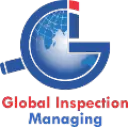Toys are an essential part of childhood, providing entertainment, education, and developmental benefits. However, they can pose a serious safety hazard if not made with quality materials and manufactured to meet safety standards. This is where the EN71 comes into play. In the European Union, toys are regulated by the EN71 Toy Safety Standard, which provides guidelines for the safety and quality of toys. Compliance with this standard is mandatory for all toys sold in the European Union, and failure to comply can result in legal action, including fines and product recalls.
What is EN71 Toy Safety Testing?
EN71 Toy Safety Standard is a European Union directive that outlines safety requirements for toys. It covers various aspects of toy quality control, including physical, mechanical, and chemical properties. The standard applies to all toys sold in the European Union, regardless of where they are manufactured.
EN71 testing involves evaluating a toy’s safety by assessing its design, manufacture, and materials. Accredited laboratories conduct the tests, including physical and chemical tests and assessments of the toy’s packaging and labelling.
Why are Toy Testing Standards Mandatory?
Toy safety standards are crucial in protecting children from potential harm caused by unsafe toys. Toys that are poorly designed or made with hazardous materials can pose serious safety hazards, including choking, poisoning, and injury. Toy safety standards help to ensure that toys are safe for use by children, providing guidelines for manufacturers to follow when designing and producing toys.
Why Do I Need an EN71 Certification Test Report?
If you are a manufacturer, importer, or distributor of toys, you need an EN71 test report to demonstrate that your toys meet the safety standards set out in the directive. An EN71 certificate for toys provides evidence that your toys have been tested by an accredited laboratory and comply with the standard’s requirements.
An EN71 test report assures your customers that your toys are safe for use by children, which can help to increase consumer confidence in your brand. It also protects your business from legal action, including fines, which can be expensive and damaging to your reputation.
What Are the Requirements for EN71 Toy Safety Testing?
The EN71 Toy Safety Standard divides its testing specifications into different parts, each addressing specific aspects of toy safety. Under this standard, the following criteria are covered:
- Mechanical and physical properties – to ensure that toys do not have sharp edges or small parts that could cause harm to children.
- Flammability – to ensure that toys and their components are not a fire hazard.
- The migration of harmful chemicals from toys and their components is covered in part three of the testing requirements.
- Experimental sets for chemistry and related activities have their own safety requirements.
- Chemical toys (sets) that are not experimental sets have their own testing requirements.
- Finger paints have their own specific safety requirements under part seven of the EN71 testing.
How Do I Know if a Supplier is EN71 Certified?
When selecting a toy supplier, ensuring they are EN71 certified is crucial. You can check if a supplier is certified by asking for their EN71 certificate for toys, which an accredited laboratory should issue. Here are some steps you can take to verify:
Check the supplier’s website: Many suppliers will proudly display their EN71 certification on their website. If the certification is not visible, check the About Us or FAQ section of the website, which may provide information on their compliance with toy safety standards.
Ask the supplier: You can directly ask if they are EN71 certified and request a copy of their EN71 certificate for toys. A reputable supplier will be transparent and willing to provide this information.
Verify the certificate: To ensure validity, accredited laboratories should issue EN71 certificates for toys. You can verify a laboratory’s accreditation by checking if it is listed on the UKAS website. The United Kingdom’s national accreditation body, UKAS, certifies laboratories that comply with international standards.
Check the validity: EN71 certificates for toys have an expiration date, and it is essential to ensure the certificate is valid before placing an order with the supplier.
EN71 Lab Testing Costs
The cost of EN71 lab testing can vary depending on the type of toy being tested and the number of tests required. Testing costs can range from a few hundred pounds to several thousand pounds, depending on the complexity of the toy and the number of necessary tests.
Factors that can impact the cost of EN71 lab testing include the complexity of the toy design, the materials used in the toy’s manufacture, and the number of tests required to assess the toy’s safety. Other factors that can impact the cost of testing include the location of the testing laboratory and the turnaround time needed for the testing.
It is important to note that while the cost of EN71 lab testing can be high, it is a necessary investment to ensure the safety of the sold toys.
Why Choose Global Inspection Managing (GIM) for EN71 Toy Safety Testing?
Global Inspection Managing is a reputable company for EN71 toy safety testing for several reasons, including:
- Expertise – GIM has built a reputation as a trusted and dependable partner in product inspection including toy safety testing and compliance. Our team of experienced professionals has extensive knowledge and expertise in toy safety standards, providing comprehensive guidance and support throughout the testing process. With GIM’s help, manufacturers can have confidence that their products meet all relevant safety standards and regulations. Our services ensure that products are safe for children to use, providing peace of mind to manufacturers and parents alike.
- Accreditation – As an accredited testing laboratory, GIM has undergone independent verification to ensure that they meet the stringent requirements of the EN71 Toy Safety Standard. This guarantees that their quality control procedures are of the highest quality and that the results are dependable and accurate. With accreditation, we are well-positioned to provide manufacturers with the necessary assurance that their products comply with all applicable safety standards.
- Flexibility – At GIM, we take pride in offering our clients flexible and customizable testing services tailored to their unique requirements. We understand that different manufacturers have different testing needs, so we have designed our services to be as flexible as possible. Our expertise and state-of-the-art testing facilities allow us to test a wide range of toys and create bespoke testing packages that meet our clients’ specific needs. This allows our clients to receive the exact type and level of testing they require without paying for unnecessary services. With our flexible testing services, manufacturers can ensure that their products meet all relevant safety regulations while minimising costs and improving efficiency.
Conclusion
Ensuring the safety of toys is of utmost importance for parents, caregivers, and toy manufacturers. Compliance with EN71 toy safety standards is mandatory for all toys sold in the European Union, and obtaining an EN71 certificate for toys is necessary to demonstrate compliance.
Working with a reputable and accredited testing laboratory can help ensure the safety of toys and protect businesses from legal action and product recalls. Obtaining an EN71 certificate for toys can also help build consumer trust and confidence in your brand.
Toy safety testing is a necessary investment, and while the cost of testing can be high, but it is a small price to pay to ensure the safety of children. By prioritizing toy safety and working with trusted partners like Global Inspection Managing, businesses can demonstrate their commitment to providing safe and high-quality toys for children.

